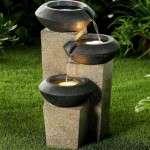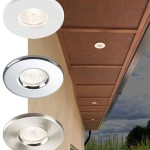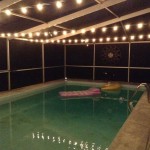What Is The Best Outdoor Kitchen Countertop Material?
Outdoor kitchens are becoming increasingly popular, offering a sophisticated and convenient way to entertain guests and enjoy the beautiful weather. However, choosing the right countertop material for your outdoor kitchen is crucial, as it will need to withstand the elements and provide durability. While various materials are available, each comes with its own pros and cons. This article will discuss the best materials for outdoor kitchen countertops, highlighting their benefits and considerations.
Natural Stone
Natural stone, such as granite, marble, and slate, offers a timeless elegance and durability. Granite is particularly popular for outdoor kitchens due to its resistance to scratches, stains, and heat. It also comes in a wide range of colors and patterns, allowing for customization. However, natural stone can be expensive and require regular sealing to prevent moisture damage. Marble, while beautiful, is more porous than granite and can be susceptible to staining. Slate, on the other hand, is known for its durability and resistance to weathering, making it a good choice for outdoor areas.
Advantages of Natural Stone:
- Elegant and sophisticated appearance
- Durable and resistant to scratches and stains
- Heat resistant
- Wide range of colors and patterns
Disadvantages of Natural Stone:
- Expensive
- Requires regular sealing
- Can be heavy and difficult to install
Engineered Stone
Engineered stone, such as quartz and porcelain, is a man-made material that combines crushed stone with resins. It is known for its durability, stain resistance, and low maintenance requirements. Quartz is a popular choice for outdoor kitchens due to its non-porous nature, making it highly resistant to stains and bacteria. Porcelain, on the other hand, is known for its heat resistance and durability, often used for outdoor countertops and flooring.
Advantages of Engineered Stone:
- Durable and resistant to scratches and stains
- Low maintenance
- Heat resistant
- Wide range of colors and patterns
Disadvantages of Engineered Stone:
- Can be more expensive than some other materials
- Can be susceptible to UV damage in direct sunlight
Concrete
Concrete is a versatile and durable material that can be customized with various finishes, colors, and textures. Concrete countertops are durable, heat-resistant, and can be molded into various shapes and sizes. However, concrete can be porous and require regular sealing to prevent staining and moisture damage.
Advantages of Concrete:
- Durable and resistant to heat
- Versatile and customizable
- Cost-effective
Disadvantages of Concrete:
- Requires regular sealing
- Can be porous and susceptible to staining
- Can be heavy and difficult to install
Tile
Tile is an affordable and versatile option for outdoor countertops, offering a wide range of styles, colors, and sizes. Ceramic tile is a common choice due to its durability and resistance to moisture, while porcelain tile offers a more refined look. However, tile countertops require grout, which can stain and require regular cleaning.
Advantages of Tile:
- Affordable and versatile
- Durable and resistant to moisture
- Wide range of styles, colors, and sizes
Disadvantages of Tile:
- Requires grout, which can stain and require regular cleaning
- Can be susceptible to cracking or chipping
Other Materials
Besides the materials mentioned above, other options for outdoor kitchen countertops include:
Stainless Steel:
Stainless steel is highly durable, easy to clean, and resistant to stains and heat. However, it can be prone to scratches and may not be aesthetically pleasing for all designs.
Wood:
Wood countertops can add warmth and a natural feel to your outdoor kitchen. However, wood requires proper sealing and maintenance to protect it from moisture and weathering.
Composite Materials:
Composite materials, such as bamboo and recycled plastic, offer durability and sustainability. However, they may not be as durable for high-traffic areas.Ultimately, the best countertop material for your outdoor kitchen depends on your budget, preferences, and lifestyle. Consider the following factors when making your decision:
Durability:
The material should be resistant to scratches, stains, and temperature changes.
Maintenance:
Consider how much time and effort you are willing to put into maintaining the countertops.
Aesthetics:
Choose a material that complements the style of your outdoor kitchen and your personal taste.
Cost:
Materials range in price, so set a budget and consider the long-term cost of maintenance.
What S The Best Material For Outdoor Kitchen Countertops

What Is The Best Countertop For An Outdoor Kitchen

Top 7 Outdoor Kitchen Countertop Ideas

Outdoor Kitchen Countertops L Trex Kitchens

What Are The Best Outdoor Kitchen Countertop Materials

Discover The Premium Choice For Outdoor Kitchen Countertops

6 Outdoor Kitchen Countertop Options The Family Handyman

Discover The Best Materials For Outdoor Kitchen Countertops Stonelink Marble Granite

What S The Best Countertop Material For Outdoor Kitchens Suburban Marble

Outdoor Kitchens The Best Countertop Material For Spaces Aaa Countertops
Related Posts







